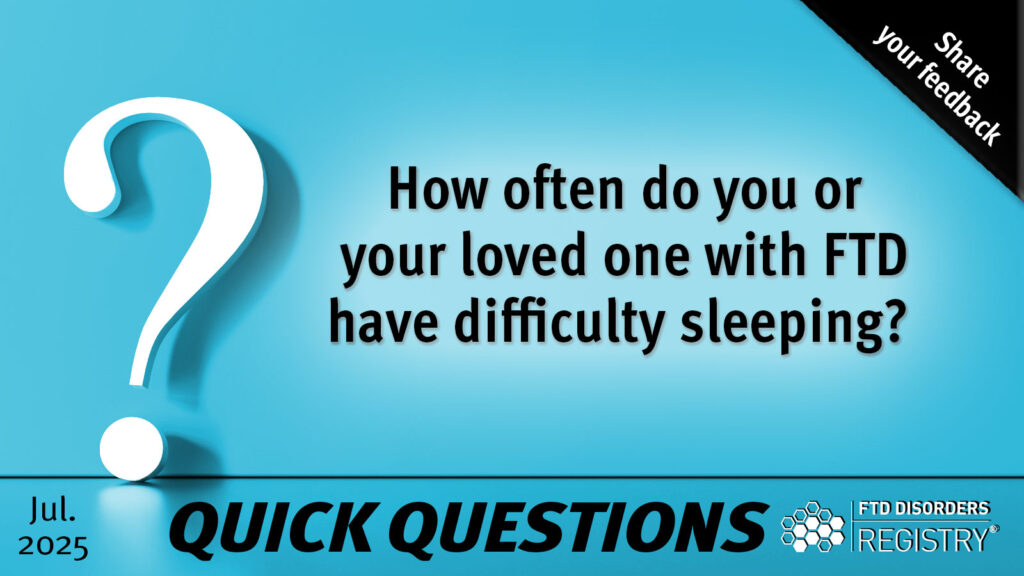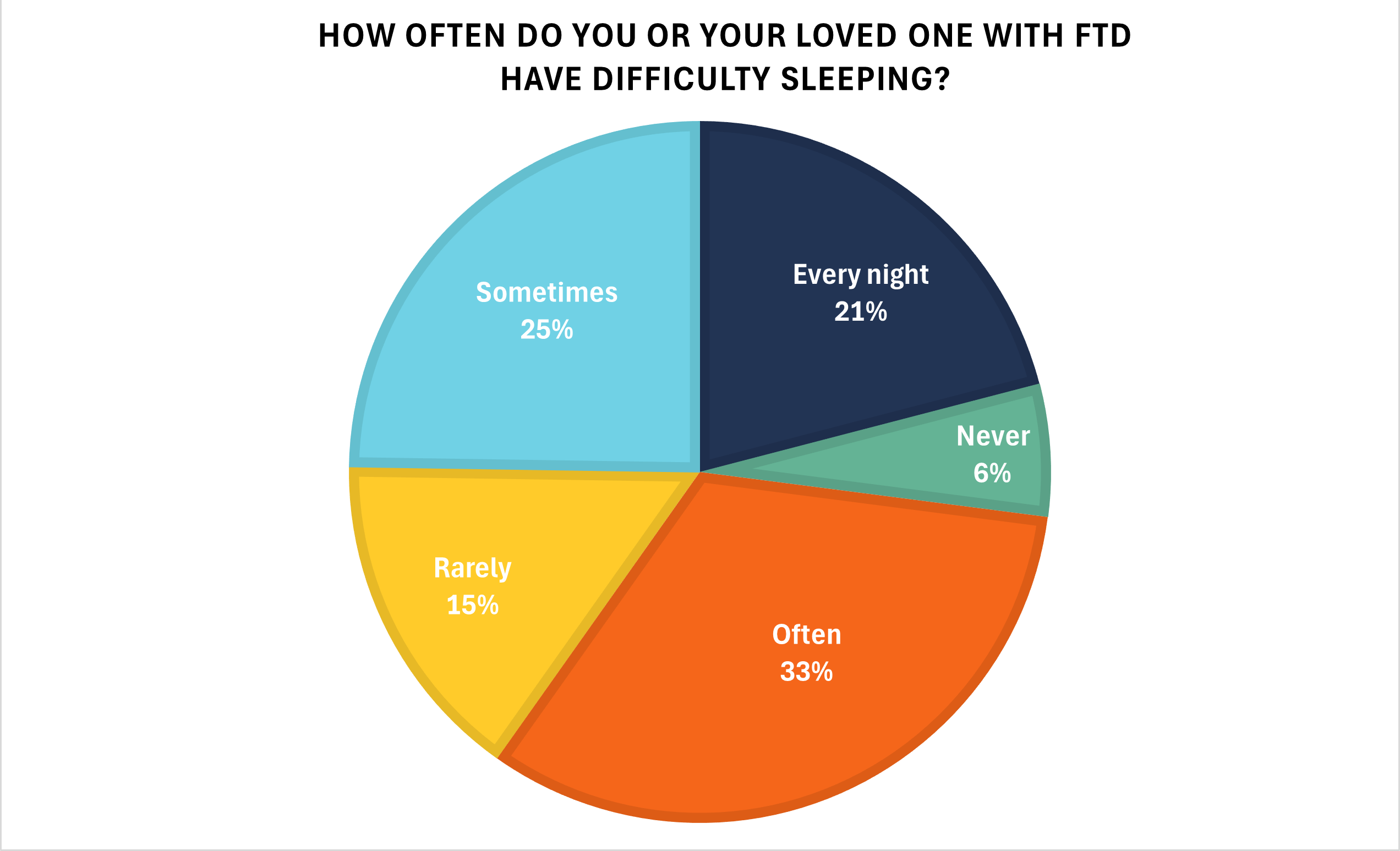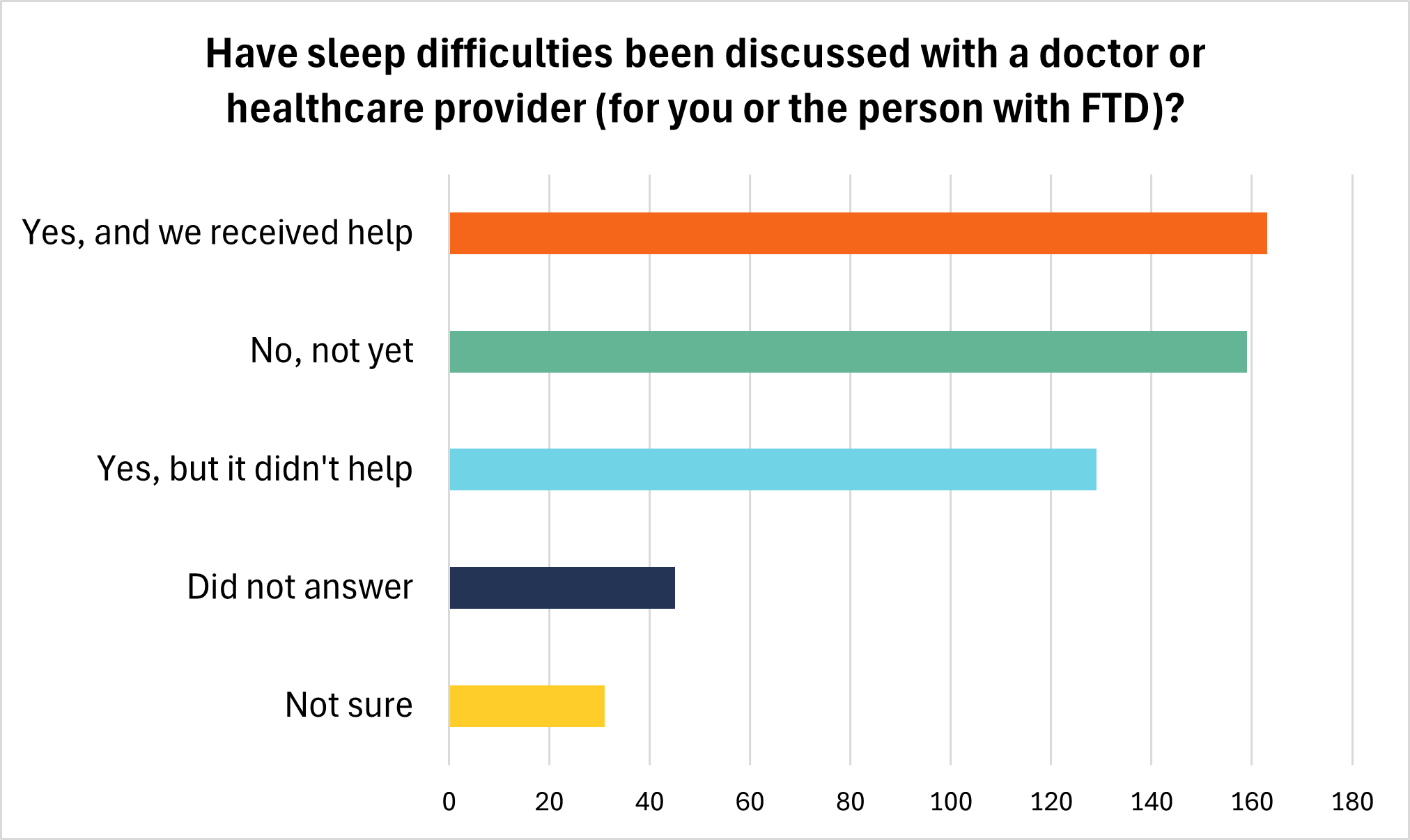PRESS & NEWS
Quick Question July 2025 Result:

528 participants responded to the FTD Disorders Registry’s July Quick Question on sleep difficulties.
528 participants responded to the FTD Disorders Registry’s July Quick Question on sleep difficulties.

Most respondents reported trouble sleeping at least sometimes, with 172 saying it happens often, 130 sometimes, 110 every night, 81 rarely, and only 32 never experiencing it.

When asked about why symptoms or behaviors were present, 77 reported talking, yelling, or agitation; 103 noted difficulty settling down before bed; 111 observed wandering or walking around; 151 saw unexplained movements or jerks during sleep; and 202 said the person stays awake at night or sleeps during the day. A total of 178 reported none of these symptoms.

When asked if they had discussed the sleep difficulties with a doctor, 163 respondents said yes and that they received help, while 129 said yes but it didn’t help. Another 159 had not yet discussed the issue, 31 were not sure, and 45 did not answer.

To address sleep difficulties, 228 respondents reported using prescription medication, 164 created a calming bedtime routine, and 154 adjusted the bedroom environment, such as changing lights, noise, or temperature. Behavioral or psychological strategies, such as relaxation or limiting naps, were used by 104 respondents, while 132 tried over-the-counter sleep aids. Seventy-six said nothing had been tried, and 45 selected “other,” with many of these citing CPAP use or CBD/THC.
Demographics
Among respondents, 4% were biological family members answering for themselves, while 15% were biological family members answering on behalf of an FTD-diagnosed person. About 1% were caregivers answering for themselves, 3% were caregivers answering on behalf of an FTD-diagnosed person, and 1% were friends answering on behalf of someone with FTD. Nearly 25% were people diagnosed with FTD answering for themselves, 8% were spouses answering for themselves, and 41% were spouses answering on behalf of an FTD-diagnosed person.

We received input on this Quick Question from all stages of the FTD journey. The largest group were those in the middle stages of FTD (42%), but we also received input from those whose FTD-diagnosed loved one had already passed away (20%), those in the late-stage of FTD (19%), and those newly diagnosed (16%).
The majority of respondents to this Quick Question were female (65%). 33% were male. Seven people did not identify their gender. Answers came from around world with respondents reporting in from 23 countries, 45 states and the District of Columbia.
Together we can find a cure for ftd
The FTD Disorders Registry is a powerful tool in the movement to create therapies and find a cure. Together we can help change the course of the disease and put an end to FTD.
Your privacy is important! We promise to protect it. We will not share your contact information.



